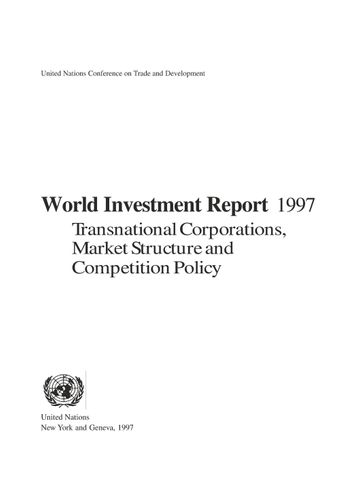- Home
- Books
- World Investment Report 1997
- Chapter
Policy implications

- Author: United Nations Conference on Trade and Development
- Main Title: World Investment Report 1997 , pp 183-238
- Publication Date: December 1997
- DOI: https://doi.org/10.18356/5a683afd-en
- Language: English
As the analysis in the preceding chapter suggests, there is a direct, necessary and enlarging relationship between the liberalization of foreign-direct-investment (FDI) policies and the importance of competition policy: on the one hand, FDI liberalization is a means of promoting competition among firms; on the other hand, in order to benefit fully from FDI liberalization, countries need to ensure that, as statutory obstacles to contestability are reduced, these are not replaced by anticompetitive practices of firms, be they foreign or domestic. This objective was unanimously endorsed by countries members of the United Nations in 1980, when they adopted the Set of Multilaterally Agreed Equitable Principles and Rules for the Control of Restrictive Business Practices. The UNCTAD Set emphasizes the need to ensure that anticompetitive practices “do not impede or negate the realization of benefits that should arise from the liberalization of tariff and non-tariff barriers affecting international trade” (UNCTAD, 1996d, p. 134). In fact, the adoption and efficient enforcement of competition legislation, including a merger-review system, can strengthen the way in which FDI liberalization can enhance market efficiency and consumer welfare and, ultimately, promote the development of developing countries.
-
From This Site
/content/books/9789213626658s009-c005dcterms_title,dcterms_subject,pub_keyword-contentType:Journal -contentType:Contributor -contentType:Concept -contentType:Institution105

